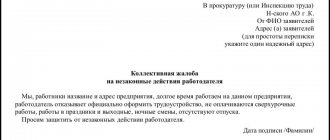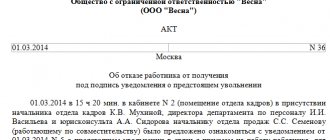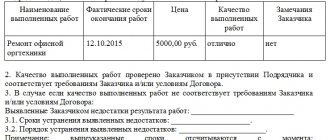Concept and form of a marriage contract
A prenuptial agreement is an agreement between persons who have decided to get married or spouses who have already entered into marriage. This agreement defines the property rights and obligations of the parties. Both during marriage and at its end. You can draw up a marriage agreement both before the state registration of the marriage, and at any time during the marriage.
If the parties entered into a marriage contract before registering the marriage, it will enter into legal force only from the date of registration of the marriage. After the divorce, the former spouses cannot enter into such an agreement. A property division agreement is suitable for them.
The marriage contract is concluded exclusively in writing. And is subject to notarization. In this case, the notary will not only check the compliance of the marriage contract with the law, but will also explain to the spouses its meaning and significance. To notarize a marriage contract, you must pay a state fee.
Failure to comply with the written notarial form of the marriage contract entails its invalidity.
Arbitrage practice
Below are conclusions from judicial practice that should be taken into account when drawing up a draft agreement:
- deprivation of one of the parties' rights to all property acquired jointly during the marriage serves as a basis for declaring such an agreement invalid (decision of the Supreme Court of the Russian Federation dated December 20, 2016 No. 5-KG16-174);
- the condition that all property acquired during the marriage remains with the spouse in whose name it was acquired is recognized by the courts as legal (appeal ruling of the Omsk Regional Court dated July 26, 2017 in case No. 33-5060/2017);
- when the marriage contract was concluded less than 3 years before the initiation of bankruptcy proceedings of one of the spouses or the organization created by the spouse, the marriage contract may be declared invalid upon the application of the bankruptcy trustee or organization as infringing on the rights of creditors and aimed at removing property from the property, respectively, of the debtor or subsidiary debtor (Appeal ruling of the Moscow City Court dated 03/02/2020 in case No. 33-9618/2020);
- if the terms of the contract do not correspond to the subject and purpose of the contractual regime of the spouses’ property, they may be declared invalid (decision of the Chelyabinsk Regional Court dated October 31, 2011 in case No. 33-11593/2011).
***
A husband and wife have the right to determine whether to change the legal regime of ownership of their property, including in relation to things that have not yet been acquired. This right can be exercised with the help of a marriage contract, which must comply with the requirements of legal acts and the actual will of the parties. The document comes into force from the date of notarization. An example of its design can be found above.
You should be more careful when describing the provisions of the transaction, formulate them as precisely as possible (indicate specific amounts, terms, calculation procedure, etc.) and avoid vague phrases, and also take into account the conditions of reality and judicial practice set out in this article.
You can find more complete information on the topic in ConsultantPlus. Free trial access to the system for 2 days.
Marriage contract: subject and parties to the contract
The subject of a marriage contract can only be the property rights and obligations of spouses who are married or upon its dissolution. The issue of non-property rights, for example, the residence of children, cannot be resolved.
Parties to a marriage contract can only be spouses or persons entering into marriage. And only adults and capable citizens. If the age of marriage of one or both persons entering into marriage is lowered by a local government body, it is impossible to conclude a marriage contract before registering the marriage. Since full legal capacity in this case arises from the moment of marriage.
A prenuptial agreement provides spouses with the opportunity to change the regime of joint ownership established by law. You can establish a mode of shared, separate or joint ownership. Both for all property and for its individual types. In addition, an agreement can be concluded not only in relation to the existing property, but also in relation to the future property of the spouses. It is important that the provisions of the marriage contract do not conflict with the norms of the Civil Code of the Russian Federation.
What documents need to be prepared
To register a marriage contract, you must provide a package of documents. Depending on the date of compilation, the list of documents will vary. If the contract is concluded before marriage, then future spouses are required to provide only copies of passports.
If the marriage has already been concluded, the list of documents is wider and includes:
- copies of spouses' passports;
- marriage registration certificate;
- documents for all property owned by the spouses (which is owned);
- in the case of marriage between persons under the age of majority, written consent of the parents or guardianship authorities is required for the marriage.
In any case, in order to avoid possible misunderstandings, before drawing up a marriage agreement, it is worth checking the package of necessary documents with the notary who will certify the contract.
The property owned by the spouses will be described in a contract indicating who and to what extent it belongs (or will belong), as well as the procedure for using this property.
Basic elements of a marriage contract
General provisions. We are talking about property acquired during marriage and which is common joint property. The fate of this property is described in the event of divorce by mutual consent, as well as on the initiative of one of the spouses or the unworthy behavior of the wife or husband.
Features of the legal regime of certain types of property. The legal regime and fate during divorce of various types of property are considered: bank deposits, shares and other securities, jewelry, wedding gifts, real estate, cars, etc.
Additional terms and conditions. The conditions for the use and disposal of property that belongs to each spouse by right of personal ownership are stipulated. The procedure for using a residential building (room, apartment) and its release in the event of divorce.
Final provisions. The section contains provisions for the notary to familiarize the parties with the legal consequences of the legal regime of property that they have chosen. The moment of entry into force of the agreement and the conditions for the distribution of costs associated with the preparation and registration of the agreement are noted.
Document structure
As already mentioned, the agreement can only apply to the property relations of the spouses. But we must remember that not a single document can go against modern legislation. Therefore, it is impossible to include clauses that contradict civil legislation (and it is the Civil Code in Russia that regulates all property relations).
What may be included in the contract
The following points may be stipulated in a marriage agreement:
- the procedure for distributing monetary income of each spouse. Income refers to the spouse’s earnings and all bonuses transferred to him, income received from the disposal of property (renting, selling, etc.). The spouses may indicate that all income belongs to the party who is their recipient, or a shared or joint distribution of funds may be established;
- procedure for bearing expenses. This refers to spending money on family needs, for example, purchasing food, clothing or household items, paying utility bills, educational and medical services, keeping pets, etc.;
- procedure for disposing or using property acquired or obtained by other means;
- procedure for disposing and using existing property;
- possibility of mutual content. The norms of the RF IC provide for additional assistance to a disabled or partially able-bodied spouse, in addition to the financial assistance already due to him. Such a condition can be established for both current and former spouses.
The procedure for the use and disposal of property can also be established in the event of a divorce or death of one of the spouses. In the event of death, civil law rules regarding the procedure for inheriting the property of a deceased person will also be involved.
The terms of the agreement in such a case must not contradict the inheritance regime, otherwise the rights of the remaining heirs may be infringed.
An agreement may be concluded under suspensive or disqualifying conditions.
A suspensive condition provides for postponing the fulfillment of the terms of the concluded agreement until a certain date. For example, the contract may indicate that a car that was purchased during marriage and is joint property will become the property of the wife upon the birth of a child.
A cancellation condition means the cancellation of any of the clauses of the contract upon the occurrence of a certain situation or date. For example, joint property (for example, an apartment), acquired over the years of marriage, during a divorce will go to the party that did not contribute to the occurrence of the circumstances that led to the divorce.
The contract may also establish the type of ownership of the property:
- share;
- joint;
- personal.
When establishing a shared type of ownership of property that belongs or will belong to spouses, the parties indicate to whom, what and in what shares the property will belong. For example, the parties agreed that when purchasing a country house, shares would be established in proportion to the amounts contributed by the parties to purchase the house.
The emergence of joint property among a married couple is provided for by the Family Code, however, in the marriage contract it can be discussed which property will be joint. For example, when further purchasing a house, car and garage, the spouses agreed that only the house would be transferred into joint ownership, while the garage and car belonged entirely to one of the spouses.
Personal Property – Establishing full ownership of property acquired before or during marriage. For example, purchased household appliances (plasma TV), in the event of a divorce, will not be the subject of a dispute, since the document states that this TV belongs only to the spouse and the wife does not lay claim to it.
As for the premarital property of the spouses, the type of ownership can also be established for it. Initially, all this property was the personal property of each party, however, upon concluding a marriage and agreement, it can be indicated that the wife’s property, which belonged to her before marriage, becomes joint property, or shared property, indicating the desired shares of each spouse.
But premarital property owned by one of the parties cannot be completely transferred to the ownership of the other party after marriage. In this case, we are talking about a gift agreement, and this is not included in the marriage agreement.
What cannot be included in the contract
The terms of the marriage contract cannot conflict with modern legislation:
- conditions that could lead to a severe disadvantage for one of the parties to the contract. Since the contract deals with property relations, the inclusion of certain conditions due to great attachment and personal dependence may subsequently lead to the emergence of a situation that violates and significantly infringes on the rights of one party;
- conditions affecting the legal capacity or performance of any party. Thus, an agreement cannot establish rules regarding the choice of one of the parties to the agreement regarding the sphere of activity, religion, freedom of movement (Article 26, Article 27, Article 28, Article 29 of the Constitution of the Russian Federation), the possibility of obtaining professional education, conditions that limited civil, political and other rights of the spouse provided for by the Constitution of the Russian Federation. The legal capacity and legal capacity of a person can only be limited by the court;
- conditions limiting a party's right to judicial protection. Restriction of this right is a special case of limitation of legal capacity;
- conditions governing relationships related to raising children. Since a marriage contract can only regulate relations of a property nature, with regard to children, the contract can only take into account the procedure and amount of payment for educational institutions, sections and other material needs. As for the moral side, the contract cannot establish to whom, after the divorce is concluded, the child will go to be raised, since in this situation, first of all, it is necessary to take into account the wishes of the child himself. This issue is resolved between the spouses without drawing up an agreement, taking into account the interests of the child, his attachment to one of the parents, his age and other qualities;
- clauses regarding personal non-property relations of the parties. The prohibition on introducing such provisions lies, firstly, in the impossibility of leading to their enforcement;
- requirements for limiting the disability of one of the parties and receiving maintenance for them. Since we are talking about the vital maintenance of a person, the inclusion of restrictions will lead to the invalidity of such an agreement.
The inclusion of a term that, according to the law, cannot be included will lead to full or partial invalidation of the agreement.
The rules regarding the completion of a bilateral transaction, provided for by civil law, apply to a marriage contract, therefore all terms of the contract must be of a volitional nature and be included independently and without coercion.
By the claim of one of the parties, a marriage contract that was concluded under the threat of violence, or concluded fraudulently, abusing the trust of the party, will be declared invalid by the court.
Article on the topic: conditions for concluding a marriage contract.
Contents of the marriage contract
Spouses, through a marriage contract, have the right to change the regime of joint ownership, which is established by law. A regime of shared, separate or joint ownership may be established for all the property of the spouses, for some types of it, or for the property of each of the spouses.
Spouses in a marriage contract can indicate their rights and obligations to support each other, ways of participating in personal income, and the procedure for each person’s participation in family expenses. The property that each spouse will receive upon divorce may be determined. The marriage contract contains any other provisions that relate to the property relations of the parties.
A marriage contract cannot limit the legal capacity of the spouses or their right to go to court to protect their rights. Also, it cannot regulate non-property personal relations between spouses, the rights and obligations of spouses in relation to children. An agreement cannot limit the right of a needy disabled spouse to receive maintenance.
Sample marriage contract for newlyweds
An approximate scheme for drawing up a document is as follows:
- Name of the document, date and place of its conclusion.
- Identification data of counterparties (full name, passport data, addresses).
- Determination of ownership regimes in relation to certain property.
- Conditions for the disposal of things that are joint property.
- Financial expenses of spouses for family purposes.
- Contract time.
- Conditions for notifying creditors.
- Signatures of the parties and dates of their execution.
An example of a transaction can be downloaded from the following link: Marriage contract after marriage.
The terms and conditions must be set out in the text clearly and in as much detail as possible, there should be no contradictions or phrases that allow the provisions of the agreement to be interpreted in two ways, and concepts that do not have a generally accepted meaning should not be used (if absolutely necessary, indicate what the parties understand by this term).
How a marriage contract is changed and terminated
The amendment and termination of a marriage contract is regulated by Article 43 of the RF IC.
Spouses have the right at any time, by mutual consent, to change or cancel the marriage contract. Such change or termination of the contract must be formalized by the spouses in writing. And have it certified by a notary. The obligations of the spouses will be considered changed or terminated from the time the agreement is concluded, unless otherwise determined by agreement of the parties.
The law does not allow unilateral refusal to fulfill this agreement. In the absence of mutual consent of the spouses, the marriage contract can be changed or terminated at the request of one of them only through the court. No other persons have the right to make such claims. When deciding such a case, the court is guided by Articles 450 and 451 of the Civil Code of the Russian Federation, which contain the grounds for amending and terminating the contract. The most important of these is considered to be a significant breach of contract by one of the parties. Therefore, when concluding a marriage contract, we recommend indicating violations that may be considered significant. And which will become the basis for changing or terminating the agreement.
A special reason for changing or terminating a contract is a significant change in the circumstances that were foreseen by the parties when concluding the contract. This is such a change in circumstances that if the parties had foreseen them, they would not have concluded the contract at all.
According to Article 453 of the Civil Code of the Russian Federation, upon termination of a contract, the obligations of the parties cease from the time an agreement is reached or a court decision enters into legal force. At the request of each party, the court will determine the consequences of termination of the contract.
If the terms of the contract are changed, the rights and obligations of the spouses remain unchanged. The agreement changes individual terms and content of obligations. But it retains its effect for the future.
The marriage contract is considered terminated from the moment of divorce. But those obligations that the agreement secured for the period after the termination of the marriage continue to apply.
Cost of notary services
The Family Code prescribes the mandatory certification of a marriage contract by a notary. The service is paid. Other costs may also apply.
- Before contacting a notary's office, one of the parties must draw up a draft marriage contract. You can get by with preparing the contract yourself. If you turn to lawyers, keep in mind that the cost of drawing up an agreement in Moscow varies from 5,000 to 10,000 rubles. Complex contracts will require costs several times higher.
- To have a document certified by a notary will cost 500 rubles (2018), this tariff is the same for all of Russia. The notary will check the contract and accompanying documents for compliance with the law.
- Technical work (printing, copying) may require some additional costs of about 500-1000 rubles.
Advantages and disadvantages
In order to dispel all doubts and begin documenting future relationships with his other half, a person must evaluate all the advantages and disadvantages of concluding a marriage contract.
Pros:
- A citizen can analyze his property rights in advance, knowing that the entire complex of property rights will be retained in the event of a divorce or other family circumstances.
- It is possible to group property rights that arose before the period of marriage and after the official registration of the union. Thanks to this, controversial issues do not arise regarding jointly acquired property.
- Spouses can prescribe the nuances under which certain property will become the property of one of them.
- The contractual method of distributing property rights saves the couple from protracted litigation and costs associated with paying state taxes. duties.
Minuses:
- Difficulties in document preparation. Not every citizen can prepare a marriage contract independently, observing all the requirements of civil law and family norms. Often a married couple has to turn to law firms to provide the services of qualified lawyers.
- The form of the marriage contract is indicative. The judge may invalidate the act if there is an error in filling it out.






